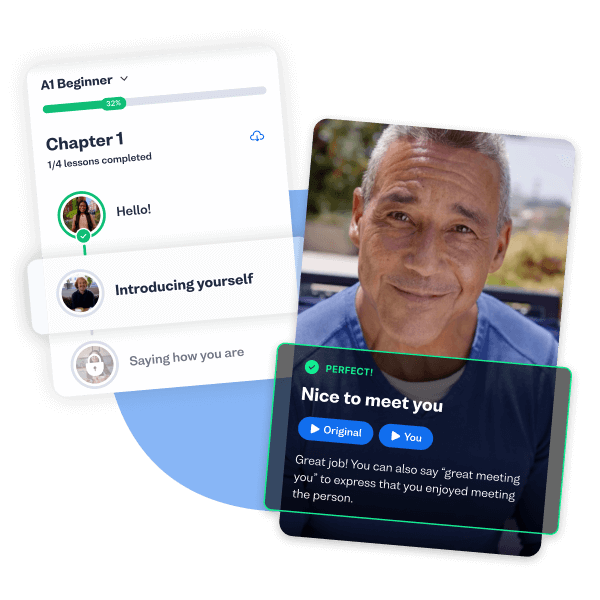Why Learning English Language Is Important
Discover the importance of learning English in today’s world.
If you’re thinking about learning a language and don’t already speak English fluently, you’ll probably hear people say that English is the most important language to learn. But why exactly should you believe them?
We’re here to tell you just that.
Here are the 6 most important reasons to learn English
1. Widely spoken
When considering why learning English is important, this is perhaps the biggest factor you should consider. One in five people in the world (the whole world!) can speak, or at least understand, English. It’s a very handy language for travel and communication.
2. Career booster
As the primary language of business, it is important – no, imperative – to know how to speak English when talking to international colleagues or customers. Having English language skills increases your chances of getting a good job, whether in a multinational company or working abroad.
3. Not that hard (no, really!)
While the vocabulary and pronunciation can be a bit difficult to learn, English grammar is easier compared to other European languages. There are only two genders, one definite and indefinite article, and cases don't really matter at all...
4. Valuable for education
Where do you want to study? Have you ever considered studying abroad? Countries like the United States and the United Kingdom are home to some of the world's most greatest universities and colleges. And even in non-English speaking countries, there are thousands of good schools around the globe offering their programmes in English. Which means learning English might mean accessing a better education.
5. Rich in literature & popular culture
Ever heard a song and wished you could learn the lyrics, or been frustrated by a bad dub of a TV show or film? Or maybe you’ve wanted to experience the works of masterful English writers, from J.K. Rowling to Stephen King to Jane Austen, in their original language. Learn English, you’ll finally be able to listen to, watch and read your favourite songs, TV and books in their original form.
6. Digital door-opener
Last, but certainly not least, most of the content available on the internet is in English. From YouTube videos to podcasts and websites, there’s so much content out there that isn’t always translated into other languages. Learning the language will allow you to access information that otherwise may not be available to you
Recommended articles
- Prepositions in English: How to Use Them?
- Regular Verbs in Spanish: 100 You Need to Know
- Present Verbs in Spanish Explained (With Examples)
- 20 Most Common Italian Verbs (Conjugation Tables)
- UK Language Learning Report 2021
- Learn Spanish for Travel with Our App
- French Masculine or Feminine: Usage and Differences
- Spanish Greetings: Learn How to Say Hello
- Pretérito Indefinido: Use the Simple Past in Spanish
- Benefits of Learning a Foreign Language For Your Career
- Japanese Numbers: How to Count from 1 to 100
- 10 Types of Nouns in English You Need to Know
New articles
- 32 English Words Borrowed from Spanish
- Types, Uses and Examples of English Determiners
- Spanish Question Words: How to Use Them?
- What is Colloquial Language & Differences with Slang
- AP Spanish Exam: Free Online Preparation Course
- It works! 22 hours of Busuu Premium = 1 college semester
- Spanish Verbs: How They Work & Conjugation Rules
- Negative Commands in Spanish with the Imperative
- French Verb Conjugation: Everything you Need to Know
- French Masculine or Feminine: Usage and Differences
- What is an Indefinite Article? (Examples Included)
- English Genitive Case Structure and Use Explained
